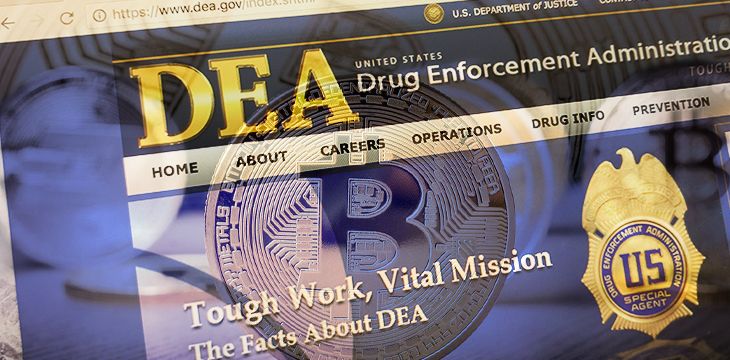|
Getting your Trinity Audio player ready...
|
The U.S. Department of Justice recently audited the Drug Enforcement Administration (DEA), and found that the federal law enforcement agency has been mismanaging the digital currencies seized from its operations.
The goal, according to the official report, was “to evaluate the management and oversight” of DEA’s Attorney General Exempt Operations (AGEO). What the DOJ found, however, was far below the standards they were expecting.
The DOJ discovered that the way the DEA currently manages the digital currency they obtain from AGEO—undercover financial transactions that the DEA facilitates to infiltrate and dismantle drug trafficking and money laundering organizations—increased the risk of fraud, waste, abuse, and unauthorized investigative activity taking place.
Even DOJ was surprised
Considering that the DEA undercover agent, Carl Mark Force IV, pleaded guilty to fraudulently obtaining over $700,000 worth of BTC as the DEA worked to dismantle Silk Road in 2015, the DOJ was surprised that the DEA had not “implemented additional internal controls specifically related to investigations involving virtual currency,” especially after it became clear that government agencies and agents could abuse virtual currency.
We are concerned that following this incident (the silk road bust) [that] the DEA did not implement additional internal controls specifically related to investigations involving virtual currency, the report stated.
Record-keeping poses problems
Beyond the internal abuse that comes from agents embezzling and mishandling virtual currency, the DOJ audit revealed that the DEA’s virtual currency recorded keeping is flawed.
Despite the unique challenges of virtual currency laundering schemes, such as unknown fees and spontaneous currency fluctuations that are not present in traditional money laundering, the DEA did not create new processes and forms to conduct and document these undercover activities. Instead, the AGEO case agents used DEA forms designed for traditional money laundering transactions to document undercover and evidence.
The audit revealed that the DEA was trying to account for virtual currency transactions the same way they accounted for fiat currency transactions, which is not optimal given the fluctuation of digital currency prices, the varying transaction fees attached to digital currency transactions, and the network hard forks that entitle the holders to other digital assets.
During our review of virtual currency activity in AGEOs, we found that the DEA’s management of virtual currency-related activities was insufficient due to inadequate headquarters management, lack of policies, inadequate internal control procedures, insufficient supervisory oversight, and lack of training, according to the DOJ.
The department it was the DEA’s lack of digital currency expertise and supervision that was preventing it from properly managing virtual currency-related cases. As a result, the DOJ wants the DEA to:
Evaluate the resources devoted to administrative oversight of investigations involving virtual currency and establish policies setting firm internal controls, risk mitigation, and deconfliction techniques, and appropriate record-keeping practices.
In other words, the DOJ wants the DEA to change their virtual currency management style so that their records can accurately reflect the amounts taken during the operations they conduct and so their business operations are resilient to internal fraud and abuse.

 02-16-2026
02-16-2026 




